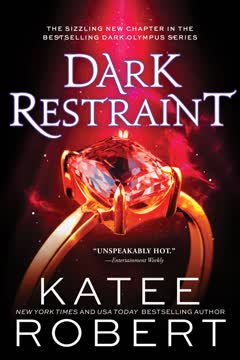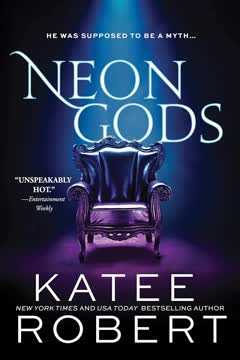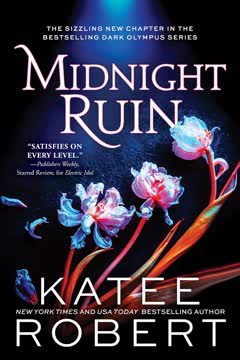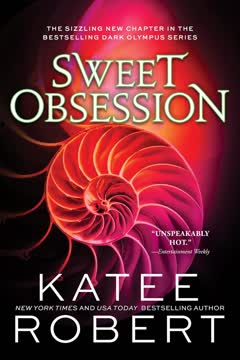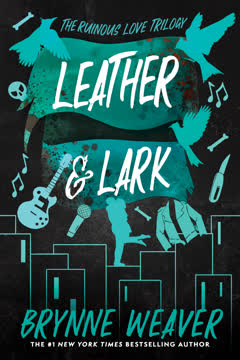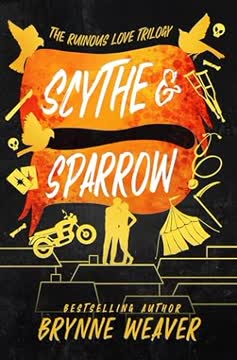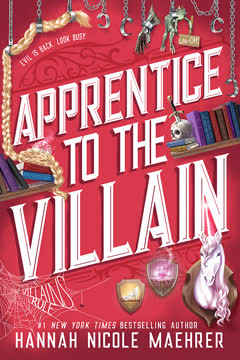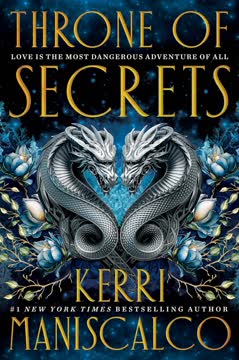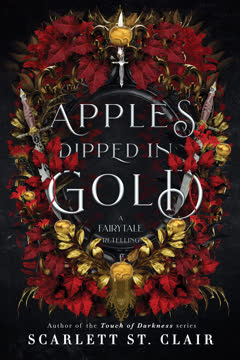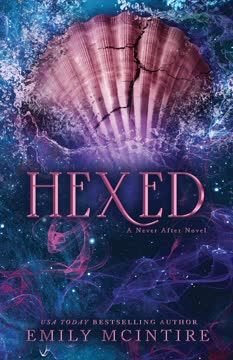Plot Summary
Blood and Betrayal Maze
On a day thick with tension and violence, Ariadne defies her father's orders and flees to the heart of a garden maze, her private sanctuary. There, she is found by Asterion—the Minotaur—her father's most dangerous weapon and her forbidden desire. Their encounter is charged with the knowledge that both have betrayed Minos: Ariadne by leaking information to the Olympians, Asterion by sparing a life for her sake. Their passion is desperate, a collision of fear, longing, and the knowledge that their union is a final, irrevocable betrayal. In the sunlit maze, they cross a line that cannot be uncrossed, binding themselves together in blood and pleasure, even as the world outside begins to burn with the consequences of their choices.
Lovers and Traitors
Ariadne's absence is a wound in Asterion's world. Discovering her note, he learns she is pregnant, terrified, and running—not just from her father, but from him. She chooses abortion and escape, fearing both Minos's control and Asterion's possessive love. Asterion's fury is volcanic; he feels abandoned, betrayed, and denied the future he imagined. Yet, beneath his anger, he is driven by a relentless need to reclaim her, to prove that she is his, no matter the cost. The city's politics are shifting, but for Asterion, the only war that matters is the one for Ariadne's heart and body. He vows to hunt her down, mercy be damned.
Bargains for Sanctuary
Ariadne trades secrets for sanctuary with Hades and the Olympians, securing her abortion and temporary safety. She is treated with unexpected kindness, but remains a pawn in a larger game. Hera and Aphrodite debate her fate, ultimately arranging a political marriage to Dionysus—a union meant to display her defection and solidify alliances. The contract is shockingly generous: separate homes, no sex required, and freedom to take lovers. Ariadne is numb, her agency stripped away, but a kernel of hope flickers at the prospect of a husband who will not demand her body. Still, she mourns Asterion, haunted by the impossibility of their love.
Marriage as Weapon
Minos erupts at Ariadne's marriage to Dionysus, seeing it as the ultimate betrayal. He orders Asterion to kill his daughter, making her an example. Icarus, Ariadne's brother, protests, but is cowed by years of abuse. Asterion, torn between rage and possessiveness, accepts the order outwardly, but his true intent is to reclaim Ariadne, not destroy her. He bides his time, waiting for the city's barrier to fall so he can take her and escape Olympus. The stage is set for a deadly game of cat and mouse, with Ariadne's life hanging in the balance.
The Minotaur's Hunt
Ariadne adjusts to life with Dionysus, who proves to be a surprisingly gentle and honest companion. Yet, the shadow of Asterion looms. He infiltrates Dionysus's building, leaving a trail of dead guards as a message: nowhere is safe, and he can reach her at any time. Ariadne is shaken, guilt-ridden, and terrified—not just for herself, but for the innocents caught in the crossfire. She realizes that her choices have made her a pawn in a game where love and violence are inseparable, and that Asterion's obsession may be the most dangerous force of all.
Deadly Ultimatums
Asterion forces a meeting, demanding Ariadne steal blueprints for Dodona Tower, a key target in the coming war. He manipulates her with threats and guilt, making it clear that more blood will be spilled if she refuses. Ariadne is trapped: betray her new allies or risk more deaths at Asterion's hands. Hera intervenes, offering a deal—she will allow the theft if Ariadne ensures only Zeus is targeted. Ariadne is caught between competing powers, her own survival, and the lives of countless others. The lines between victim and accomplice blur as she is forced to play all sides.
Coffee and Threats
In a public coffee shop, Ariadne and Asterion face off. He brings her favorite drink, a gesture both intimate and menacing. He reiterates his demand for the blueprints, leveraging the previous night's violence as proof of his resolve. Ariadne, exhausted and defeated, agrees to his terms, knowing that refusal means more bloodshed. The encounter is a microcosm of their relationship: love and threat, tenderness and coercion, all tangled together. Asterion sets a deadline, and Ariadne is left to grapple with the cost of her compliance.
Deals with the Queen
Hera confronts Ariadne, revealing her own ambitions and offering protection in exchange for cooperation. The deal is simple: help Asterion, but ensure only Zeus dies. In return, Hera will safeguard Icarus. Ariadne recognizes the ruthlessness beneath Hera's polished exterior, understanding that she is merely a tool in another's quest for power. Yet, she accepts, bargaining for her brother's safety and her own slim chance at survival. The web of alliances grows ever more tangled, and Ariadne's sense of self erodes as she becomes complicit in murder for the sake of those she loves.
Dionysus's Trap
Dionysus, aware of Asterion's surveillance, lures him into a bar and drugs him to force honesty. Under the influence, Asterion confesses his obsession with Ariadne and his refusal to kill her, despite Minos's orders. Dionysus, clever and underestimated, makes it clear that Ariadne is under his protection, and that any further violence will be met with deadly force. The encounter exposes the vulnerabilities and limits of all involved, as well as the shifting nature of power in Olympus. Asterion is forced to confront the reality that brute strength alone cannot secure what he desires.
Blueprints and Backdoors
Ariadne struggles to obtain the blueprints, her skills as a hacker both a blessing and a curse. She is wracked with guilt over her role in the coming violence, and her longing for Asterion grows unbearable. When they finally reunite, their passion is tinged with desperation and regret. They take solace in each other's bodies, even as the world around them crumbles. The blueprints become a symbol of their entanglement—tools of destruction, but also of hope for escape. Their love is both a weapon and a wound.
Reunion and Reckoning
In the aftermath of their reunion, Asterion and Ariadne confront the depth of their feelings and the impossibility of their situation. They confess old wounds, first times, and the scars that bind them. Their lovemaking is a reclamation of agency and a defiance of the roles forced upon them. For a brief moment, they find peace in each other's arms, but the specter of betrayal and violence lingers. The night is a fragile sanctuary, a pause before the storm.
Brunch and Betrayal
Ariadne and Dionysus share a moment of genuine connection over brunch, discussing love, loyalty, and the nature of their marriage. Hera interrupts, revealing her plan to overthrow Zeus and seize power. Ariadne is drawn deeper into the web of Olympian politics, her own desires and loyalties increasingly conflicted. The lines between friend and foe blur, and Ariadne realizes that survival may require betraying even those who have shown her kindness. The cost of freedom grows ever higher.
Sibling Shadows
Ariadne reconnects with Icarus, learning of his own desperate bargains and the lengths he has gone to secure their freedom. Their shared trauma is laid bare, and Ariadne is forced to confront the ways in which her choices have hurt those she loves. Icarus's recklessness and self-destruction mirror her own, and together they mourn the family they never truly had. The past is a weight they cannot escape, and the future is uncertain.
Dressing Room Confessions
In a boutique dressing room, Asterion and Ariadne's passion flares in a dangerous, public setting. Their encounter is a dance of dominance and submission, power and vulnerability. They test the boundaries of trust and desire, exposing old wounds and forging new bonds. The world outside is forgotten, if only for a moment, as they claim each other in defiance of the roles imposed upon them. The risk of discovery only heightens their connection, making the stolen moment all the more precious.
Skirt and Scars
Ariadne pushes back against Asterion's possessiveness, asserting her own agency and desires. Their sexual encounter is a battle of wills, each seeking to claim and be claimed. The scars they bear—physical and emotional—become symbols of their shared history and the pain that binds them. In the aftermath, they are forced to confront the reality that love alone may not be enough to save them from the violence closing in on all sides.
Hermes's Game
Asterion seeks out Hermes, the trickster, to secure a way out of Olympus. Their alliance is uneasy, built on mutual need rather than trust. Hermes's motives are opaque, her loyalties ever-shifting. She promises to help bring down the barrier, but her true intentions remain hidden. The plan for escape takes shape, but the risks multiply. Asterion and Ariadne's fate now depends on the whims of a woman who delights in chaos.
Night of Surrender
Overwhelmed by guilt, grief, and fear, Ariadne seeks solace in Asterion's arms. For one night, they surrender to vulnerability, allowing themselves to feel the weight of all they have lost and all they still hope to gain. Their connection is a lifeline, a reminder that even in the darkest moments, love can offer a measure of peace. But dawn brings new dangers, and the promise of safety is as fragile as ever.
Dinner with the Thirteen
Ariadne attends a tense dinner with the Thirteen, the city's ruling elite. The gathering is a performance, alliances shifting with every word and glance. Danger lurks beneath the surface, and Ariadne is acutely aware of her precarious position. Asterion finds a way to steal her away, offering her food and comfort in a private moment that stands in stark contrast to the public spectacle. Their love is a rebellion, a refusal to be defined by the roles others have chosen for them.
Escape Plans
Minos sets a trap for Asterion, revealing his true contempt and intent to destroy all who have betrayed him. Icarus, broken by years of abuse, is caught in the crossfire. Asterion, wounded but unbowed, rescues Icarus and flees to Ariadne. Together, they make a desperate plan to escape the city as the barrier's fall becomes imminent. The past is a weight they cannot shed, but the future demands action.
The Final Stand
At the marina, the trio's escape is blocked by Minos, gun in hand and vengeance in his heart. In a moment of crisis, Ariadne shoots her father to save Icarus, shattering the last ties to her old life. Poseidon and his forces arrive, threatening to capture or kill them. Icarus's reckless bravery buys Ariadne and Asterion a chance to escape by boat, but at the cost of his own freedom. The price of survival is steep, and the wounds—physical and emotional—are deep.
The Barrier Falls
Hermes orchestrates the destruction of the barrier, using Asterion as a distraction and leaving a trail of bodies in her wake. The city is thrown into chaos as the magical wall collapses, opening Olympus to invasion and upheaval. Ariadne and Asterion sail into uncertain freedom, pursued by the consequences of their actions and the knowledge that the world they left behind is burning. The cost of escape is measured in blood and loss.
Aftermath and Promises
Ariadne and Asterion, battered and broken, sail into the unknown. The loss of Icarus and the trauma of killing her father haunt Ariadne, but Asterion's steadfast love offers a fragile hope. They dream of a life beyond violence, of travel and family and peace. The world is vast, and their wounds are many, but together they face the future—uncertain, but finally their own. In the ruins of Olympus, the promise of freedom is both a burden and a blessing.
Characters
Ariadne
Ariadne is the daughter of Minos, raised as a pawn in her father's ruthless quest for power. Intelligent, resourceful, and deeply wounded, she is torn between loyalty to her family and the desperate need for freedom. Her relationship with Asterion is both sanctuary and danger—a place where she can choose, but also where she is claimed. Ariadne's journey is one of self-assertion: from passive victim to active agent, she bargains, betrays, and ultimately kills to protect those she loves. Her guilt is profound, but so is her capacity for love and hope. She is the emotional heart of the story, embodying the cost of survival in a world built on violence and manipulation.
Asterion (The Minotaur)
Asterion is Minos's perfect weapon: brutal, scarred, and feared by all. Yet beneath the monstrous exterior lies a man shaped by trauma, longing for connection and belonging. His love for Ariadne is possessive, overwhelming, and at times destructive, but it is also his only tether to humanity. Torn between loyalty to his maker and devotion to Ariadne, Asterion's journey is one of self-discovery and rebellion. He is both protector and threat, capable of tenderness and unspeakable violence. His greatest fear is losing Ariadne, and his greatest hope is a life beyond bloodshed—a hope he barely dares to believe in.
Minos
Minos is the embodiment of patriarchal power: cold, calculating, and utterly without mercy. He views his children as tools, his household as an extension of his will, and the world as a chessboard to be conquered. His love is conditional, his rage boundless. Minos's inability to see his children as people, rather than assets, is his undoing. He is both the villain and the tragic product of a world that rewards cruelty. His death at Ariadne's hands is the final, necessary severing of the old order.
Icarus
Icarus is Ariadne's younger brother, forever in the shadow of their father's disappointment. Sensitive, self-destructive, and fiercely loyal to his sister, he seeks validation in all the wrong places. His recklessness is both a cry for help and a weapon against the world that has hurt him. Icarus's journey is one of painful growth: from pawn to player, from victim to agent. His final act of bravery—sacrificing his own freedom for Ariadne's escape—cements his role as both tragic and heroic.
Dionysus
Dionysus is one of the Thirteen, known for his vices and his ability to slip through the cracks of Olympus's power games. Forced into marriage with Ariadne, he proves to be a surprisingly kind and honest partner, offering her freedom and protection without expectation. His intelligence and subtlety are often underestimated, but he is a master of survival. Dionysus's role is that of the safe harbor—a reminder that not all power must be wielded with violence.
Hera
Hera is the architect of many of the story's political machinations, using marriage, murder, and alliances to secure her own power. She is both ally and threat to Ariadne, offering protection in exchange for complicity. Hera's ambition is matched only by her ruthlessness; she is willing to sacrifice anyone, including her husband, to achieve her goals. Yet, there is a strange integrity to her: she keeps her bargains, even as she manipulates those around her.
Hermes
Hermes is the story's unpredictable element, moving between factions with ease and delighting in secrets. Her motives are opaque, her loyalties ever-shifting. She is both helper and betrayer, orchestrating the fall of the barrier and the chaos that follows. Hermes's true allegiance is to herself—and perhaps, in a strange way, to the possibility of a new order rising from the ashes.
Poseidon
Poseidon is one of the legacy Thirteen, a man of few words and immense strength. He is loyal to Olympus, but not blind to its flaws. When forced to choose between violence and mercy, he often chooses the latter, but his patience has limits. Poseidon's role is that of the immovable object: a force that must be reckoned with, but not easily swayed.
Aphrodite
Aphrodite is the arranger of marriages, the spinner of alliances, and the keeper of secrets. Their role is to smooth over the rough edges of Olympus's politics, but beneath the surface lies a keen understanding of power and vulnerability. Aphrodite is both ally and adversary, their true motives hidden behind a mask of beauty and charm.
Circe
Circe is the shadow looming over Olympus, the force behind Minos's ambitions and the coming war. Her exile has made her ruthless, her pain a weapon. She is both the destroyer and the promise of something new—a reminder that the old order must fall for anything better to rise.
Plot Devices
Dual Narration and Shifting POV
The story unfolds through the alternating voices of Ariadne and Asterion, each chapter offering a window into their private fears, desires, and rationalizations. This structure allows the reader to experience the same events from different emotional vantage points, highlighting the unreliability of perception and the complexity of trauma. The shifting POV also serves to build tension, as secrets are revealed to the reader before the characters themselves understand their implications.
Political Marriage and Forced Alliances
Ariadne's marriage to Dionysus is a masterstroke of political maneuvering, transforming her from enemy to symbol of unity. The contract's terms—no sex, separate homes—underscore the transactional nature of alliances in Olympus. This device exposes the ways in which bodies, especially women's, are used as currency in the pursuit of power.
The Maze and the Barrier
The garden maze is both a literal and symbolic space: a place of secrecy, rebellion, and forbidden love. The city's magical barrier functions similarly, representing the limits imposed by power, tradition, and fear. Both are sites of transformation—where choices are made, lines are crossed, and the possibility of escape is both tantalizing and fraught with danger.
Foreshadowing and Chekhov's Gun
From the first mention of Ariadne's hacking skills to the repeated references to the city's barrier and the blueprints for Dodona Tower, the narrative is laced with foreshadowing. Every detail—every secret, every alliance, every wound—returns in the story's final act, culminating in a cascade of betrayals, deaths, and desperate gambits.
The Power of Choice and Agency
Throughout the novel, characters are stripped of agency by those more powerful than themselves. Yet, in moments of crisis, they reclaim it—through acts of violence, sexual autonomy, or self-sacrifice. These choices are rarely clean or heroic; they are messy, fraught, and often come at great personal cost. The story interrogates the limits of agency in a world designed to deny it.
Analysis
Dark Restraint is a searing exploration of power, trauma, and the search for agency in a world built on violence and manipulation. Katee Robert reimagines mythic archetypes—Ariadne, the Minotaur, the labyrinth—as vehicles for contemporary anxieties about consent, autonomy, and the cost of survival. The novel's emotional core is the relationship between Ariadne and Asterion: a love that is as much wound as balm, shaped by shared pain and the desperate need to claim something—someone—as their own. The story refuses easy answers or tidy resolutions; every victory is bought with blood, every escape leaves scars. In the end, the lesson is not that love conquers all, but that love, when chosen freely and fiercely, can offer a path through the maze—a way to survive, if not to heal. The fall of Olympus is both literal and symbolic: the collapse of old orders, the breaking of chains, and the uncertain promise of a future built on the ashes of the past.
Last updated:
Review Summary
Dark Restraint receives mixed reviews, with an average rating of 3.48/5. Readers appreciate the political intrigue and steamy scenes but criticize the toxic relationship dynamics and underdeveloped characters. Some find the plot engaging, while others feel it lacks depth. The book's darker themes and possessive male lead polarize opinions. Many reviewers express excitement for future installments in the series, particularly Hera and Zeus's story. Overall, the book is seen as a quick, engaging read for fans of dark romance, though it may not appeal to everyone.
